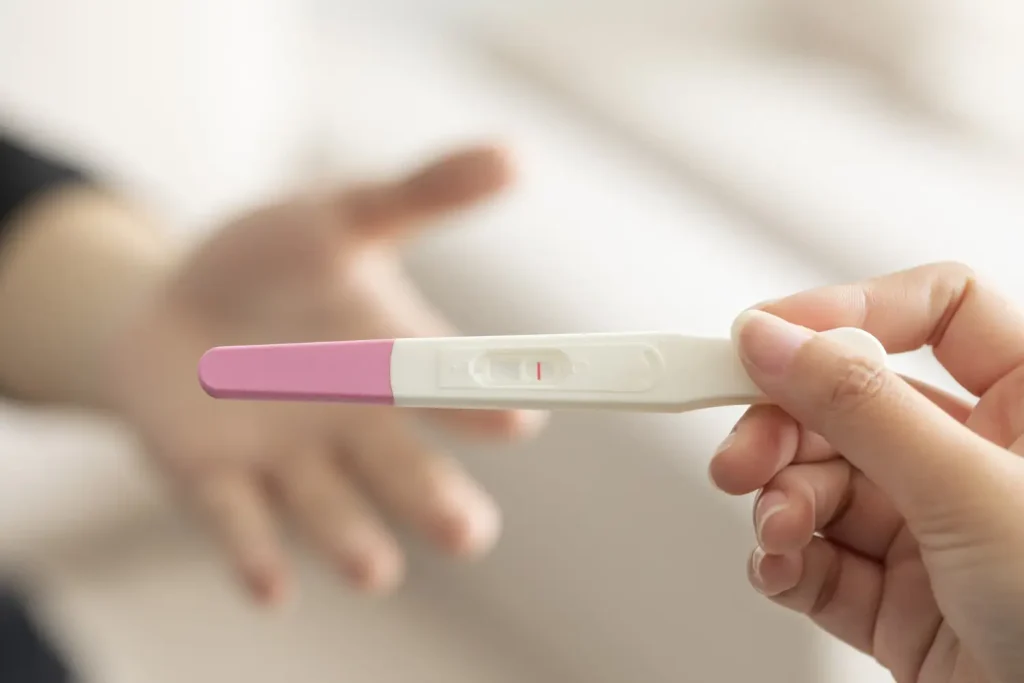The use of contraceptives dates back to ancient Egypt, where women used a mixture of honey and acacia leaves to prevent pregnancy. Over the centuries, birth control methods have evolved, leading to modern options like injectable contraceptives, which offer long-lasting protection.
One of the most widely used injectable contraceptives is Depo-Provera, commonly known as the Depo shot. This progestin-only injection provides reliable birth control, but its effectiveness doesn’t begin immediately for everyone. The timing of the first dose plays a crucial role in how soon protection starts, and some individuals may need backup contraception for a short period.
In this article, we’ll explore how long it takes for the Depo shot to become effective, the factors that influence this timeframe, and best practices to ensure optimal protection.
Key Takeaways
- Depo-Provera provides immediate protection when administered within the first five days of your menstrual cycle, with no need for backup contraception.
- If the shot is given outside of this window, such as mid-cycle, its effectiveness is delayed, and backup contraception (e.g., condoms) is necessary for at least seven days.
- Postpartum and post-abortion administration of Depo-Provera requires specific timing: immediate postpartum use is recommended for non-breastfeeding individuals, while breastfeeding individuals should wait six weeks before starting the shot.
- Ovulation suppression begins within 24 hours after the shot, but complete suppression may take up to seven days. Cervical mucus thickening also occurs rapidly and becomes fully effective in a few days.
- Consistent follow-ups every 12–13 weeks are essential to maintain continuous protection and maximize the shot’s long-term contraceptive effectiveness.
About: Medical Spa RX provides medical practices with premium products at the best prices. If you’re looking to buy Depo-Provera online for your practice, the sales representatives at Medical Spa RX can give you guidance.
Immediate Protection When Starting Depo Shot During Menses
Many people ask, how long does it take for Depo shot to work? The answer depends on timing. When Depo-Provera shot is administered within the first five days of your menstrual period, it provides immediate protection against pregnancy. This timing ensures that you are not ovulating, allowing the hormone, medroxyprogesterone acetate (the Depo-Provera generic name), to take full effect without delay. This is the ideal time for first-time users, as it offers peace of mind right from the start.
No backup contraception is needed when the shot is correctly timed within the first five days of the menstrual cycle. This guideline applies even if your period is light or short, as long as it is clearly part of your regular cycle. By following this timing, users can feel confident in the shot’s immediate contraceptive effectiveness and avoid unnecessary worry about the need for extra protection.
Delayed Onset and Backup Needs for Mid-Cycle Administration
If you receive your first Depo-Provera shot outside the first five days of your menstrual cycle, its contraceptive effect will be delayed. During this time, using a backup method such as condoms or abstinence for at least seven days is necessary to prevent pregnancy. This waiting period ensures the injection has enough time to suppress ovulation and alter cervical mucus, making it more difficult for sperm to reach the egg.

Timing plays a crucial role in Depo-Provera‘s effectiveness. Since the shot does not immediately stop ongoing ovulation, receiving the injection mid-cycle could result in temporary vulnerability to pregnancy. This is why healthcare providers will often ask about your last menstrual period and recent unprotected sex before administering it outside the recommended timeframe, ensuring you’re adequately protected.
Postpartum and Post-Abortion Depo-Provera Timing Scenarios
Many practitioners often prescribe Depo-Provera shot as a postpartum and post-abortion birth control method. The timing of administration is crucial for ensuring optimal effectiveness and safety for individuals in these situations.
For postpartum individuals who are not breastfeeding, Depo-Provera can be given immediately after delivery or within the first five days of childbirth. However, if the individual is breastfeeding, experts recommend waiting six weeks postpartum before administering the shot, as early administration may affect milk production. After six weeks, it is safe to begin Depo-Provera without impacting lactation.
In post-abortion cases, the timing depends on the gestational age. For a first-trimester abortion, Depo-Provera can be given immediately after the procedure. For second-trimester abortions, providers often recommend administering the shot within seven days, ensuring protection before ovulation resumes and pregnancy could occur.
Understanding these timing scenarios helps individuals make informed decisions about postpartum and post-abortion contraception, balancing health, recovery, and birth control needs.
How Quickly Depo-Provera Birth Control Shot Suppresses Ovulation and Cervical Mucus
To prevent pregnancy, the Depo shot works in two key ways: by suppressing ovulation and thickening cervical mucus. These changes don’t happen instantly but occur rapidly after the injection.

- Ovulation Suppression: The birth control shot starts suppressing the release of an egg from the ovaries within 24 hours. However, complete suppression may take up to 7 days in some cases, especially if started mid-cycle.
- Cervical Mucus Thickening: This effect begins shortly after the injection and becomes more effective over the next few days, making it harder for sperm to reach the uterus and fertilize an egg.
While the body begins responding quickly, backup contraception is still recommended for the first 7 days, unless the shot is given during the first five days of the cycle or immediately postpartum. This ensures that ovulation suppression and cervical mucus thickening occur fully before the shot can offer complete protection.
Conclusion
To maximize the effectiveness of Depo-Provera birth control shot, timing is key. Administering the shot during the first five days of your period or immediately after childbirth (if not breastfeeding) ensures immediate effectiveness. In other scenarios, such as mid-cycle starts or delayed postpartum use, patients should use additional contraceptive methods for the first week.
Always follow your healthcare provider’s advice regarding timing and use. Consistent follow-ups every 12–13 weeks are essential to maintain continuous protection and ensure the shot’s long-term effectiveness. With proper timing and administration, Depo-Provera shot offers reliable and long-term birth control without the need for daily management.
FAQs
1. How long does Depo-Provera last?
Each injection provides protection for up to 12–13 weeks. Patients should get it every 3 months to stay effective.
2. Can I get pregnant right after stopping Depo-Provera?
Fertility may take 9–10 months (sometimes longer) to return after your last injection. This varies by individual.
3. Does Depo-Provera protect against STIs?
No. Depo-Provera does not protect against sexually transmitted infections. Use condoms for STI prevention.
4. What are the common side effects of Depo-Provera?
Common side effects include irregular bleeding, weight gain, mood changes, and delayed return to fertility.
5. Who should avoid Depo-Provera?
People with a history of breast cancer, unexplained vaginal bleeding, or certain bone density issues should avoid Depo-Provera.
6. Can I use Depo-Provera while breastfeeding?
Yes, but it’s best to wait until 6 weeks postpartum to avoid affecting milk supply.
7. Is it safe for teens?
Teens can use Depo-Provera, but long-term use may impact bone density, so they should work closely with their practitioners to monitor this.
References
Owens G. 40 Facts About Contraceptives. Facts.net. Published October 17, 2024. Accessed June 10, 2025. https://facts.net/fitness-and-wellbeing/health-science/40-facts-about-contraceptives/
Damtie Y, Kefale B, Arefaynie M, Yalew M, Adane B. Fertility return after hormonal contraceptive discontinuation and associated factors among women attended Family Guidance Association of Ethiopia Dessie model clinic, Northeast Ethiopia: A cross-sectional study. PLoS ONE. 2023;18(7):e0287440. doi:10.1371/journal.pone.0287440





















